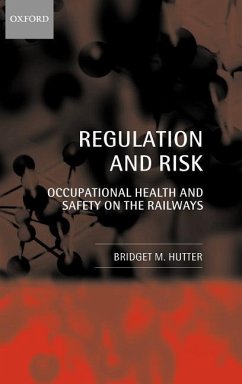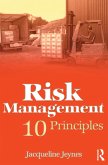These issues are especially significant following the privatization of Britain's rail network and the introduction of regulatory systems which are highly reliant on industry self-regulation. More generally, their significance is highlighted by the increasing popularity of risk-based approaches to corporate governance. The book argues that if regulation is to be an effective way of managing risk we need to pay more attention to the assumptions we make about corporate life and be more prepared to use the full range of regulatory sources and tools available to us.
Regulating risks in modern societies increasingly involves governments guiding and co-opting corporate risk management systems. This book examines the feasibility of this with reference to occupational health and safety on Britain's railways. It raises important questions about how workplace risks are managed and what influence the law can have in this. These issues are especially significant in the wake of major rail disasters and in the face of the increasing popularity of risk-based approaches to corporate governance.
Hinweis: Dieser Artikel kann nur an eine deutsche Lieferadresse ausgeliefert werden.
Regulating risks in modern societies increasingly involves governments guiding and co-opting corporate risk management systems. This book examines the feasibility of this with reference to occupational health and safety on Britain's railways. It raises important questions about how workplace risks are managed and what influence the law can have in this. These issues are especially significant in the wake of major rail disasters and in the face of the increasing popularity of risk-based approaches to corporate governance.
Hinweis: Dieser Artikel kann nur an eine deutsche Lieferadresse ausgeliefert werden.








